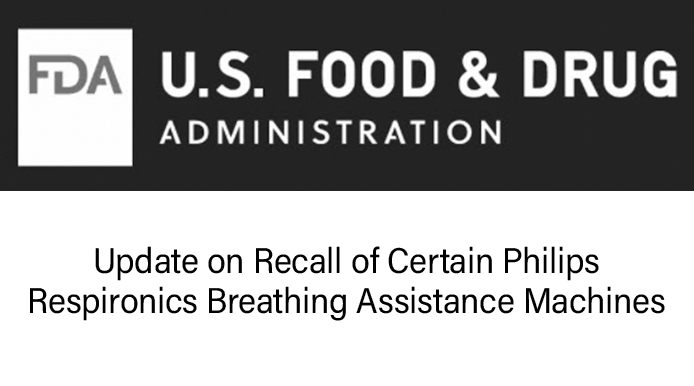

In a news release November 12, the FDA provided an update related to the recall of certain Philips Respironics ventilators, CPAP and BiPAP machines.
According to the release “during the manufacturing facility inspection, the FDA obtained additional information, not previously available to the agency, regarding the silicone-based foam used in a singular, similar device marketed outside the U.S., which failed one safety test for the release of certain chemicals of concern, called volatile organic compounds (VOCs). Similar testing provided by Philips Respironics to the FDA on devices authorized for marketing in the U.S. had demonstrated acceptable results. The FDA has requested that Philips Respironics retain an independent laboratory to perform additional testing to determine what, if any, potential safety risks may be posed to patients by the silicone-based foam.”
Following the initial recall, Philips Respironics developed a plan to repair the polyester-based polyurethane foam in the recalled CPAP and BiPAP devices with a different, silicone-based foam. The FDA initially approved this plan based, in part, on testing the company provided to the FDA in June on the new foam.
However, during the manufacturing facility inspection, the FDA obtained additional information, not previously available to the agency, regarding the silicone-based foam used in a singular, similar device marketed outside the U.S., which failed one safety test for the release of certain chemicals of concern, called volatile organic compounds (VOCs). Similar testing provided by Philips Respironics to the FDA on devices authorized for marketing in the U.S. had demonstrated acceptable results. The FDA has requested that Philips Respironics retain an independent laboratory to perform additional testing to determine what, if any, potential safety risks may be posed to patients by the silicone-based foam.
We are now attending events in person. Please join us at the following events: